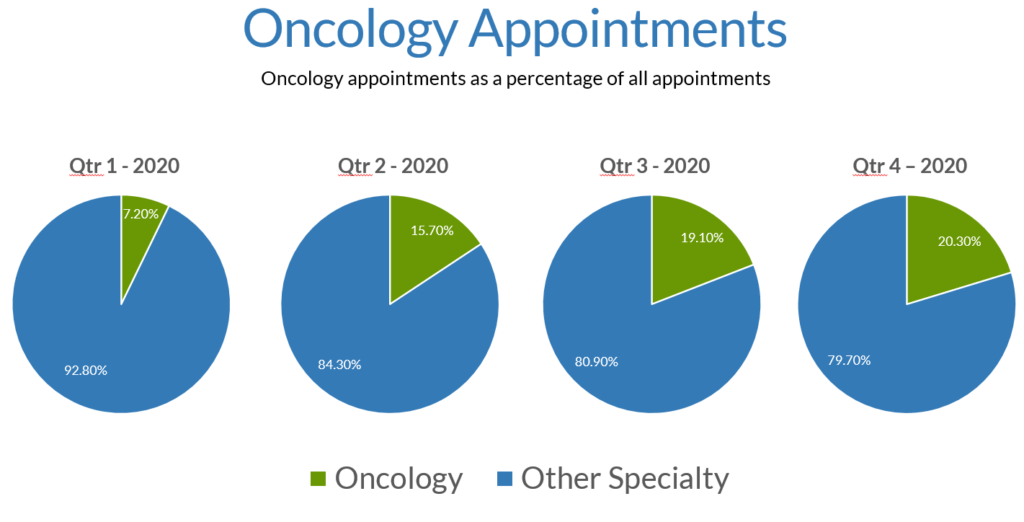Cancer Trends and Plans: Increased Demand During Pandemic

We’ve reported over the past few months that we have continued to see increased need for care for patients with a diagnosis of cancer. Now that 2020 has closed, we can report some challenging trends. In all, 70% more patients with a diagnosis of cancer presented for care in 2020 over 2019.
The COVID-19 pandemic and the ongoing economic crisis continue to bring new challenges to the lives of the patients who rely on WeCareJax for support. The number of our neighbors in need who have been putting off preventive care visits or delaying seeing a doctor if they suspect a problem is growing.
Some fear contracting the virus or bringing it home to their families. Some are waiting because they have lost their employer-provided health insurance. Others are putting rent, utilities, groceries, and the needs of their families ahead of themselves. And for many, this delay in care is creating new tragedies. Within the span of fourteen days in August 2020, WeCareJax added seven new patients to the Cancer Care Cohort, and each of them was diagnosed in a late stage of the disease – in an emergency room. Later diagnosis means more resources to help a patient on their road to recovery.
Karin Vess, WeCareJax RN Case Manager and Breast Cancer Survivor, had this to say: “In 2020, there were over 19.2 million new cases of cancer across the world, that’s more than all the people that live in New York state. We need to find a way together to decrease these numbers and find the best treatments and the best resources for ill patients. This should not be an entitlement based on what type of insurance you may or may not have. We are all human with the same feelings of fear and the unknown, it shouldn’t matter who we are or where we are from, we all shed the same tears. We are all affected through our own experience or that of someone we know, so let’s fight this together!”
February 4th is World Cancer Day, and our social media channels will be sharing more about how patients and our partners are helping bridge the gap in care.
